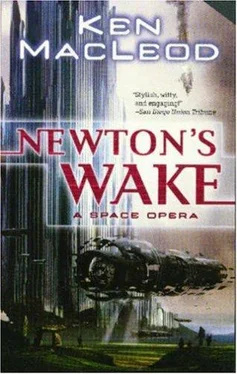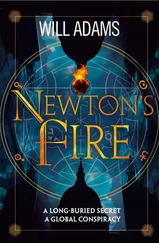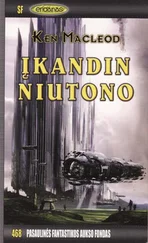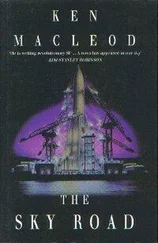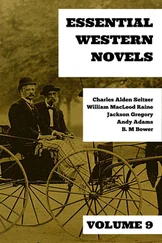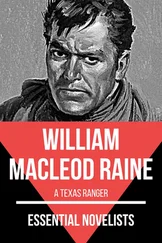She stood up, rested one foot on the chair; stooped over the guitar, strummed it, then raised her head and looked Winter straight in the eye and sang a song he remembered from Highland halls and pubs back in the 2030s. It startled him to hear it again, almost unchanged. It could have been about Guevara, or, as Lucinda had said, someone else as unworthy of the praise the song bestowed. No one had ever told him, not even when he’d sung it himself. Now that he came to think about it, inquiring after to whom the old Jacobite song now applied had not been a welcome question, and he’d learned to desist.
Sé mo laoch mo Ghile Mear
‘Sé mo Chaesar, Ghile Mear,
Suan ná séan ní bhfuaireas féin
Ó chuaigh i gcéin mo Ghile Mear .
Syne my brave darling disappeared
Naught know I but pain and sorrow
no news we heard, his death we feared
on far-off hills, in cruel caves .
That last line had been different before. Winter frowned, trying to recall it. In th’ cruel caves of somewhere somewhere. A foreign place-name. It had almost rhymed. The conversations nearby were stopping, in a spreading circle of silence. Lucinda had quite a voice, and she was throwing a lot of what sounded like real grief and yearning into it.
Sé mo laoch mo Ghile Mear
Sé mo Chaesar, Ghile Mear,
Suan ná séan ní bhfuaireas féin
Ó chuaigh i gcéin mo Ghile Mear .
Freedom’s fierce and gallant knight,
a high-flown laird with gentle eyes.
A blade of fire upon the night,
he’ll wreak destruction from the skies .
Winter joined in the next chorus, and Lucinda smiled warmly and connivingly at him, but it was to Ree she turned when she sang the rest, eyes bright and wet.
So drink his health and sing his praise
his far-famed face and sloganned name.
In every house be one who prays
he’ll scorch the tyrants with his flame .
Sé mo laoch mo Ghile Mear
‘Sé mo Chaesar, Ghile Mear,
Suan ná séan ní bhfuaireas féin
Ó chuaigh i gcéin mo Ghile Mear .
‘I didn’t know she could sing,’ Calder said.
Winter glared at him for a moment, but Calder was looking past him.
‘Behind you,’ said Calder. ‘Guy dressed like Elvis, from the rhinestones and amphetamines period. Play it cool and turn slowly. He seems to be squaring up for a fight with Amelia.’
Winter slid down from the rail and looked around. A few metres away Amelia stood with her back to him, and was indeed almost head to head with a man in a white suit. Winter expected to witness a Glasgow kiss at any moment. Beside that man stood a much taller figure in a tight, tattered space suit and with shaggy hair and beard, a man whom Winter recognised from the television as Lamont. He was leaning into the quarrel and clinging, as if for support, to the hand of a woman got up as some kind of robot sex-toy.
Winter edged closer, Calder just behind him.
‘We thought you were ready with—’ the white-clad man was shouting.
‘—fucking moron, dae ye think we hae—’
At that moment Lucinda flashed past him in a flurry of pale skirts and flung herself on the robot-like woman, hugging her and spinning her around. The quarrel abruptly halted in distraction and Lamont stepped forward and grasped both participants gently by the shoulder. Winter strode up to stand beside Amelia, who shot him a furious, about-fucking-time look. Other people, Returners and Carlyle gang and DK, were beginning to crowd around behind the antagonists, listening in and ready to back them up.
‘What’s the problem?’ Winter asked.
‘These fucking maroons,’ said Amelia. ‘They think we have a starship all set tae lift us all off. I thought your bloody General Jacques was gonnae take care of all that.’
‘What the hell can he do?’ said the man. Winter looked in his face and in a moment of disorientation recognised him as Lawrence Hammond, the Returner militant he’d last seen back on Polarity, a few subjective months and objective centuries earlier.
‘Hey, you’re—’ Hammond said.
‘Yeah, yeah,’ said Winter. ‘Glad to see you back too. You were saying?’
‘Armand’s stuck with the Runner Joint Chiefs and the Knights,’ Hammond was saying. ‘And you should see the skyport, it’s ringed with armour. No doubt the city too, and space defence. There’s not a thing that can move in the sky without being shot down. The only chance is to bring in a Carlyle ship hard and fast, we thought that was the plan—’
‘Aye, and have it shot down?’ snarled Amelia. ‘I don’t fucking think so, jimmie.’
Calder poked his head in and looked around the small but growing circle of tense faces.
‘You mean this whole thing is all about who was supposed to bring what to the party? He said, she said? Koresh on a fucking stick, kids. This is pathetic.’
Everybody bristled, turning on this new common enemy.
‘Thank you for that,’ said Winter. ‘But, yeah, this isn’t getting us anywhere. We—’
‘Excuse me,’ said the silver-skinned woman. ‘But, you know, we do have a starship… .’
Everyone looked at her, puzzled, and then Lamont grinned all over his face and said: ‘Yes!’
F
irst there was a blue light everywhere for a moment, and then from the sky came a great rushing wind that made trees bend and chairs and tables bowl along the street. Winter clung to the rail with one hand and to Lucinda’s arm with the other. She was holding her daft hat crammed down over her head and face like some utterly inadequate armour. The wind stopped as suddenly as it had started, and every face looked up and saw what was coming down. Screams and yells rose above the loudest music that still played. People ran from the park in all directions. Winter heard Calder say, in an amused, satisfied tone: ‘Thousands flee screaming …’
But he, like everyone else, was looking up with his mouth open. The sight above them was like nothing anyone had ever looked on before. A kilometre-long narrow inverted cone of a mountain hung in the air, descending slowly until its relatively tiny, bristly metallic tip touched the grass a few hundred metres away, as gently as a well-balanced needle going into a vinyl groove.
Winter knew that it was no more impossible than the sight of all the other starships he’d seen; that his back-brain’s screaming question what’s holding it up? was mistaken in its premises; but at some level he could not believe what he was seeing.
‘Well,’ said Lamont, ‘I’d like to see them try to shoot that down.’
‘Don’t say that,’ said Lucinda. ‘Let’s just get everyone on board.’
They all walked, a few score of people, into the park, against the stream of everybody else, and one by one they climbed up an extended ladder to the small hatch under that enormous overhang. Winter was among the last to go. He looked down from the top of the ladder and saw Lamont and the silver-skinned woman still on the ground. They seemed to be arguing; then Lamont shrugged, shook his head, and stepped back as she scrambled up the ladder. Halfway up she swung away like a monkey, to cling head down to one of the external comms arrays. She grinned fiercely up at Winter.
‘I’ve always wanted to do this,’ she called out.
He felt a nudge on his heel. Lamont looked up from just below him on the ladder.
‘Get in,’ Lamont said. ‘She’s mad.’ It didn’t sound like a criticism.
As Winter hauled himself through the hatch the gravity field flipped over. Somebody reached to steady him; he swung around and found his feet on a bracketted metal shelf. Lamont came in, twisted around, and set off upwards, hand over hand to another aperture a few metres above. The outer hatch closed. Looking down, and therefore skyward, Winter could see every available space and place in which to sit or cling among the ship’s fittings and machinery occupied by people in incongruous gaudy finery. It was like seeing an entire contingent of the Notting Hill Carnival thrown into some overcrowded panopticon. The sound of a hundred and fifty-odd people breathing vied with the roar of overworked air scrubbers.
Читать дальше
